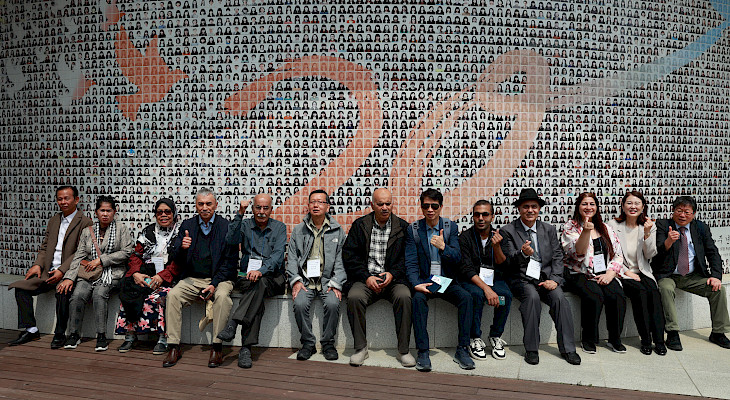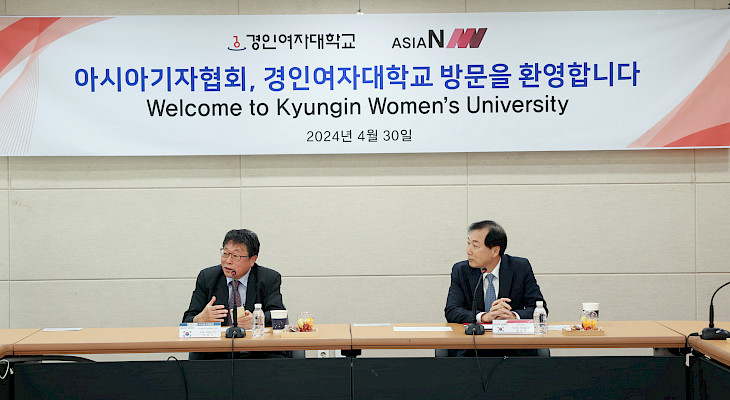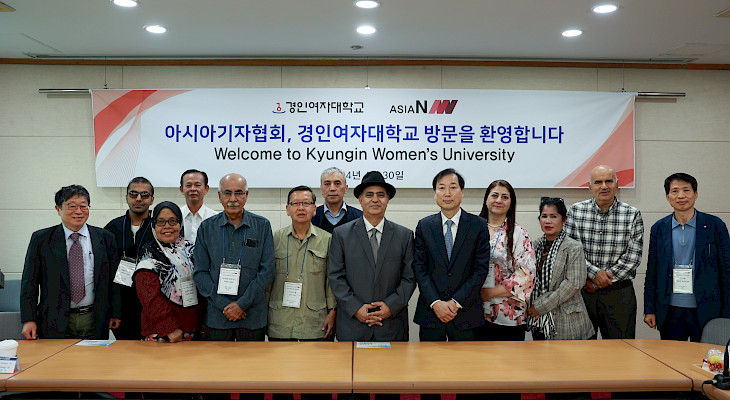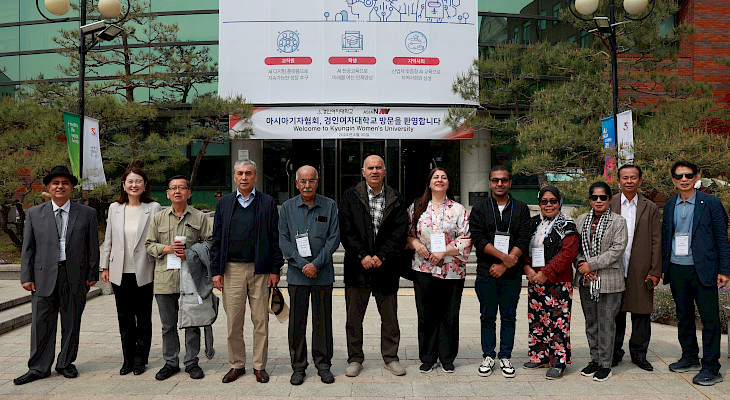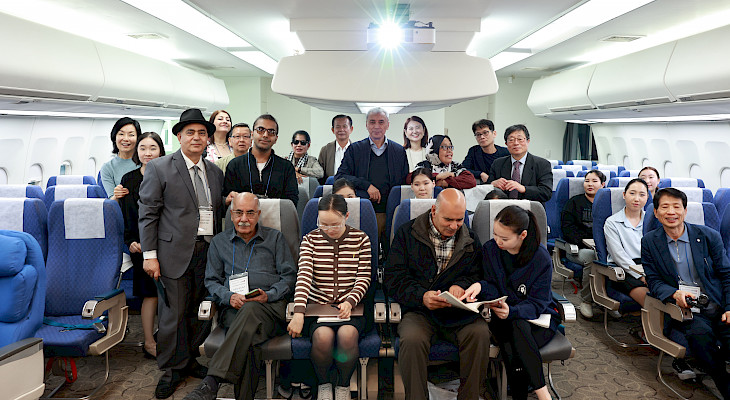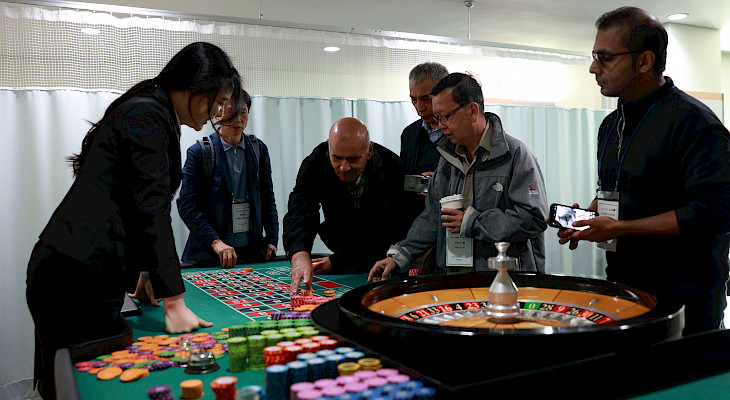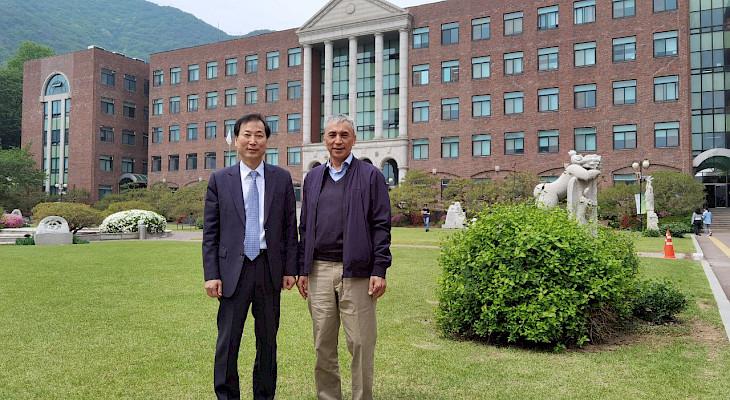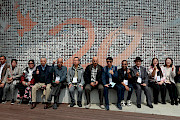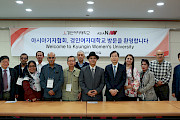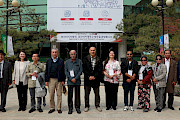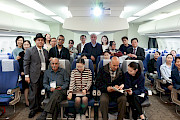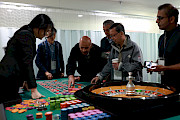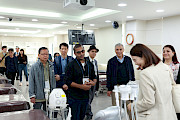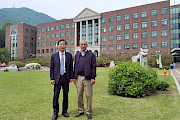Before gaining independence in Kyrgyzstan, the only Women's Pedagogical Institute named after Mayakovsky successfully operated in the country, briefly known as Zhenped. The institute graduated many female pedagogical specialists, and no one was particularly surprised by this. At that time, all educational institutions were state-owned and fully funded from the state budget.
With the acquisition of independence in 1991, Kyrgyzstan's entire higher education system rapidly transitioned to new rails, and state support practically narrowed down to issuing licenses for educational activities, while financial support decreased to a minimum, still not exceeding 5% of the state university's total budget. Educational institutions' administrations had no choice but to switch to self-financing.
Kyrgyz Zhenped also had to adapt to the new conditions. As a result, the institute was renamed as a university, thereby losing the special feminine charm of the institute, which had attracted genuine interest from the male student population, a unique and purely female contingent. Thus, Kyrgyzstan lost its only female higher educational institution. Similar to Kyrgyz Zhenped, there were counterparts in other countries of Central Asia. Their fate turned out to be similar to that of Kyrgyz Zhenped, and currently, no country in the region has any educational institution exclusively for female representatives - young girls and women.
Many thought that the situation was similar worldwide – all universities were perceived as mixed-gender, where students studied without gender segregation. Therefore, a separate university for representatives of only the female gender was far from being an ordinary phenomenon. For example, having personally visited several dozen countries worldwide, I never heard, let alone saw, such an educational institution anywhere. Even after visiting and touring major cities in South Korea multiple times, I never heard of such a university. This year, thanks to an invitation from the Asia Journalists Association and the Korean Association of Journalists, which hosted the World Journalists Conference in Seoul, I was fortunate enough to visit this wonderful country once again – the Land of Morning Freshness.
In Korea, after the conference, we were taken to a university called Kyungin International Women's University in Incheon, seventy kilometers from the capital of South Korea.
The exterior of the university's main building inspired respect and awareness that the university is one of the reputable ones in all of Korea. More than 4,500 young women of student age study there. Among them are over 400 foreigners from more than 16 countries worldwide, mainly from Southeast Asian countries and Mongolia.
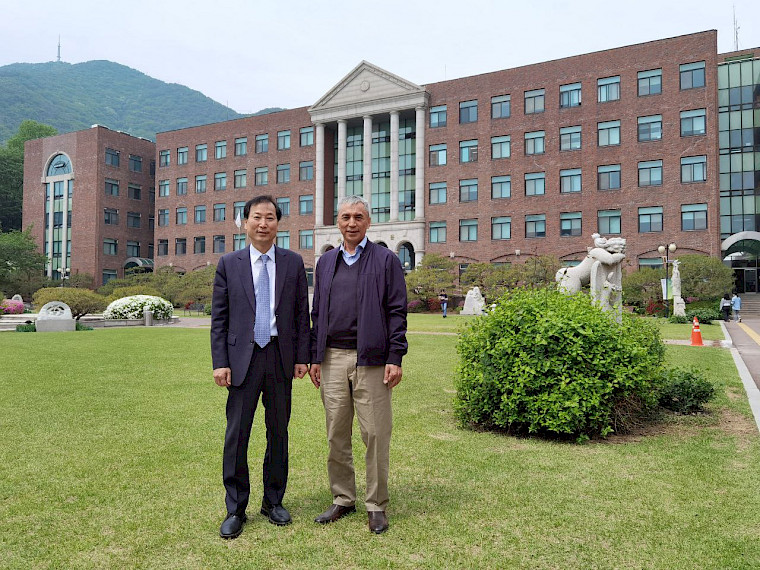
Frontside of the University Main building
It is a private university that obtained university status in 2012, having previously operated as a college. The university is funded by student fees, averaging about $2,500 per year, depending on the faculty, as well as through sponsorship provided by patrons, major Korean companies. Additionally, this university has been the winner of tenders for state funding for specific projects over the past five years. The total amount of funds received from the state during this time reached $5 million.
Notably, the university is headed by the president, Dr. Yok Dong In, and 60% of the university's entire staff are women, including the director of the International Relations Department, Dr. Kyungok Pak. She became our main guide at the university.
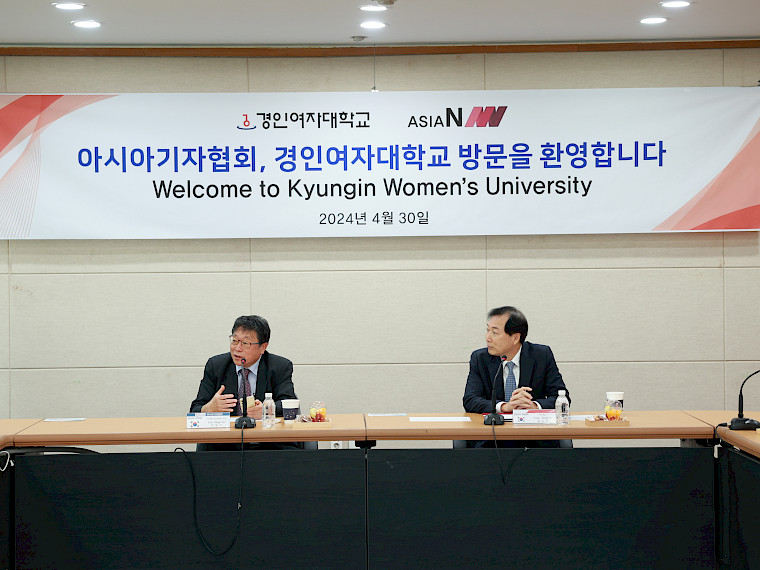
President of the KIWU Yook Dong in (right) and Founder of AJA Lee Sang ki
With the right goal-setting, coordinated university management, and balanced human resources policy, many universities worldwide can achieve results no worse than this Korean women's university. However, not many can confidently claim that more than 70% of their graduates find employment in their field of study after graduation.
Yet, this is entirely achievable with the ability to adapt to modern changes, adjust, and switch to educating students in fields that are currently in high demand. Undoubtedly, the training of specialists in classical professions such as school teachers, nurses, doctors, engineers, and technical professionals will never lose its relevance. However, most universities worldwide prepare graduates in such professions. And Kyungin Women's University is no exception here.
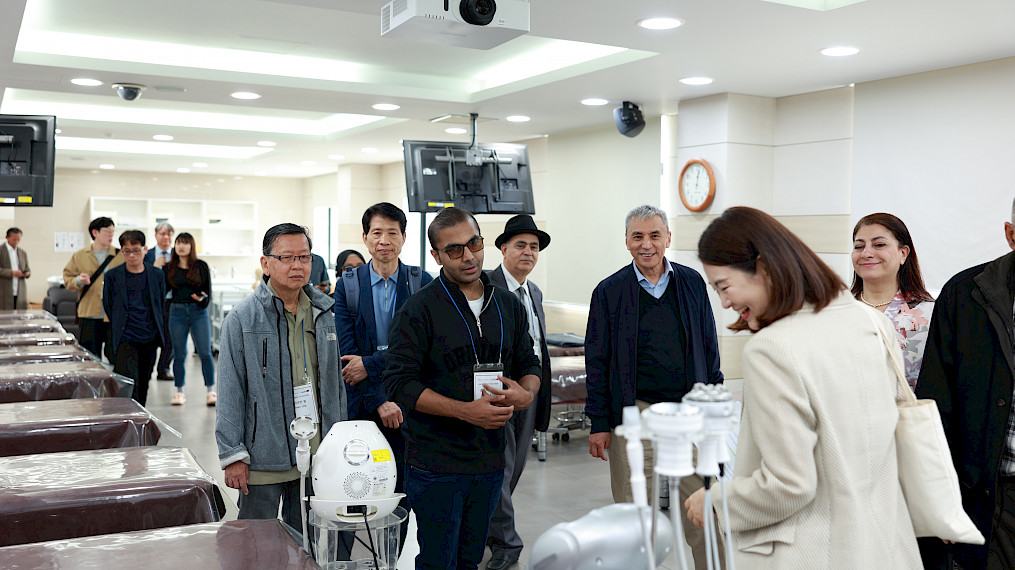
Guest guide, Dr. Kyunok Park, also head of the International Relations Department
But what is perhaps unique is that they train not widely spread but highly sought-after specialties – such as a specialist in caring for and treating facial defects. Many guests immediately tried to get a facial massage and even refresh their appearance.
The most unexpected for all university guests was how golf lessons are conducted and, even more interestingly, how they teach the profession of casino dealers at the university. Although casinos in South Korea are open for play only to foreigners, the number of students in this specialty is quite large. This means that girls from other regional countries come to Incheon to study as casino dealers. The journalistic delegation showed interest in trying their luck, and some managed to prove themselves. However, they turned out to be representatives of Korea.
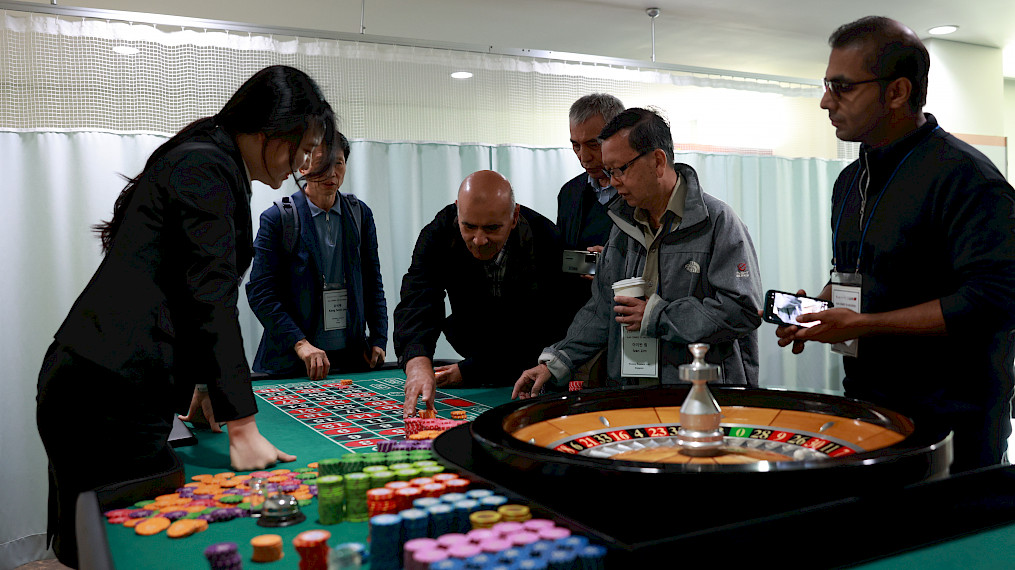
The excitement in the casino class was genuine.
For the training of each specialty at the university, practically all conditions are created that fully correspond to real life and even include rigged machines that exceed the expectations of customers. In addition, we were shown swimming classes in their own pool, training corners for golf, and even got to play a bit of bowling in a special room for classes.
The university library is very spacious and equipped with the most advanced technologies to facilitate the search for necessary literature and a large reading room. To the surprise of the guests, many students were sitting inside, studying, which speaks to their serious attitude towards their studies.
It was amazing to see that inside the university, on the fourth floor, half of the wing of the building was transformed into a salon of a modern model airliner. There, students from Mongolia were trained as flight attendants. According to the Mongolian students themselves, they spend one year studying the Korean language in their homeland, then two years studying at this university, and only then do they undergo practical training on real passenger planes and only after that do they receive certificates to work in their profession.
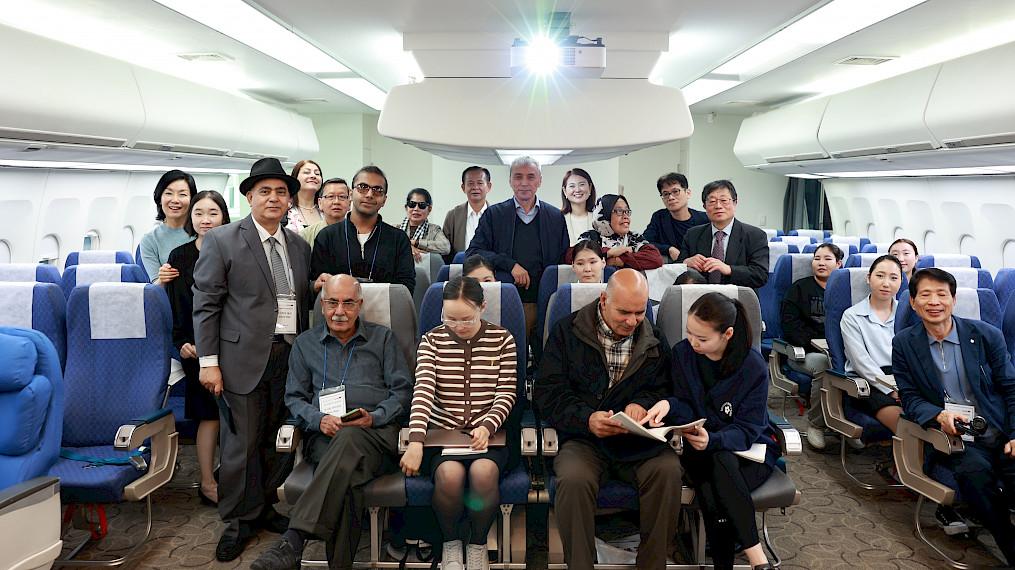
Class for training airline flight attendants
All these examples are just parts of what we managed to see at Kyungin Women's University in Incheon. But that's enough to recognize that this university does not take the path of least resistance and does not strive to prepare classical professions like in other universities, where they do not particularly think about the future of their graduates and prepare specialists that are truly in demand, albeit quite rare. They succeed in this because the number of students willing to study here is increasing, and the university intends to expand. The university has its own vision, according to which students here receive knowledge in professions that are really needed and relevant for today. And the list of graduates, along with their photos, is displayed on a specially constructed stand in one of the university's buildings.
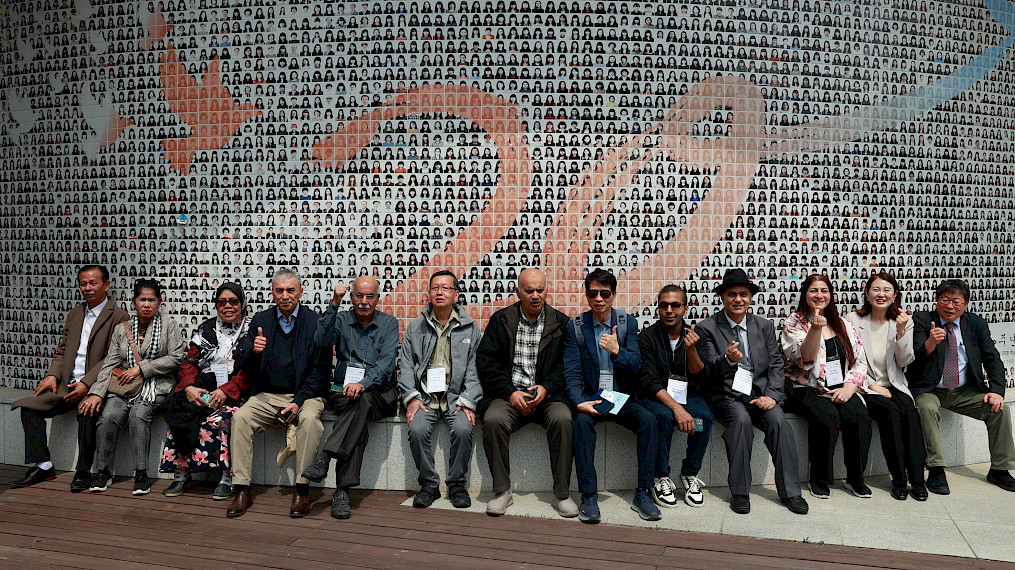

Stella with a photo of university graduates and its founders
As became clear to the guests, the mission of this university is not only to prepare specialists in demand at the moment but, to a greater extent, to anticipate which specialties will be needed in the coming years and be ready to meet the new societal needs while paying particular attention to the development of the female population of the country. In doing so, the university encourages the entire female population of the country and even beyond.
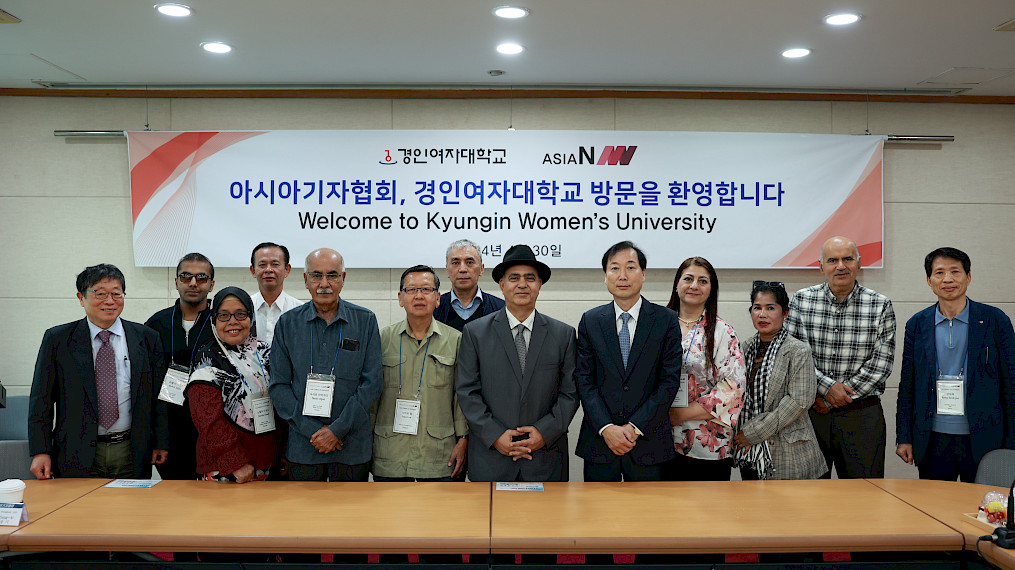
University management together with guests
In Korea, the issue of preparing female specialists is approached not formally but with understanding and a genuine desire to develop all members of society, primarily the younger generation. The brightest example of this is Kyungin Women's University in Incheon, which focuses on educating young girls. Moreover, the university management has expressed its readiness to cooperate with foreign partners.
Kuban Abdymen,
Bishkek-Seoul-Incheon-Bishkek

